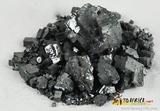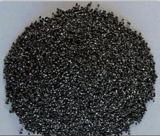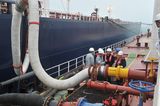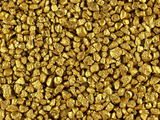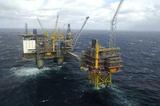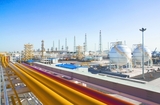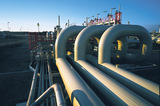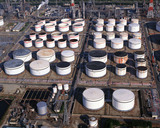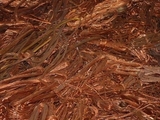TotalEnergies’ energy transition roadmap comes under fire due to oil, gas and LNG tiesThe pressure on energy players to decarbonize their portfolios and get rid of oil and gas is mounting, as global environmental activists and organizations intensify their efforts to stop the expansion of fossil fuels and accelerate the deployment of green and renewable sources of supply. This is brought home by a recent analysis of TotalEnergies’ energy production diversification strategy, which was undertaken by Reclaim Finance, a non-governmental research and climate action campaigning organization affiliated with Friends of the Earth France. With TotalEnergies’ Investor Day fast approaching and slated for September 27, the French energy giant is expected to present itself as a major player in the energy transition, but a new analysis from Reclaim Finance aims to cast doubt on the oil major’s commitment to the energy transition journey. The report claims that the company’s fossil fuel extraction will increase between now and 2030 while supposedly representing a smaller share of the French firm’s energy production mix. The NGO further elaborates that the company’s new extraction activities are largely based on natural gas, with a 40% boost in liquefied natural gas (LNG) production between 2020 and 2030. As a result, Reclaim Finance is calling on TotalEnergies’ investors to honor their climate commitments by ceasing to support the French giant until it abandons its oil and gas expansion strategy. Antoine Laurent, Advocacy Lead at Reclaim Finance, commented: “The claims, often repeated by investors, that TotalEnergies is genuinely diversifying its activities to make a real contribution to the transition do not stand up to analysis. It intends to increase its fossil gas business in both relative and absolute terms. Investors cannot credibly justify their support for TotalEnergies on the basis that they are supporting the company in its transition. This argument has no basis in fact.” An analysis of TotalEnergies’ social media outreach of the last 50 posts on Instagram over the last 12 months and the last 50 tweets on Twitter over the last three months, finds that 76% of the firm’s communications related to the energy sector were dedicated to wind power, solar power, and low-carbon sources compared to just 24% dedicated to oil and gas. However, to hammer home its belief that TotalEnergies is making “misleading” transition claims, Reclaim Finance underlines that the French player spotlights its solar, wind, and low-carbon sources of energy – hydrogen, biogas, biofuels – while these are expected to account for just 20% of its energy mix by 2030, compared to 80% reserved for oil and gas. TotalEnergies’ gross installed renewable power generation capacity was 19 GW at the end of the second quarter of 2023, up by more than 1 GW quarter-on-quarter. In addition, the NGO underscores that the oil major plans to increase gas production by 12% by 2030 and LNG production by 40% between 2020 and 2030, despite the recent claims from its CEO, Patrick Pouyanné, about the group being “committed to the energy transition.” As TotalEnergies tends to link LNG with the energy transition, its energy diversification strategy, and the desire to reduce emissions, Reclaim Finance dubs the company’s net-zero LNG aspirations as its “latest greenwashing gimmick.” While TotalEnergies puts an emphasis on its target of 100 GW gross renewable installed capacity by 2030, the NGO argues that this target includes projects in which the firm is a minority shareholder, as the company’s renewable capacity growth is based more on acquiring existing capacity than developing new supplies. Furthermore, Reclaim Finance underscores that this figure accounts for only part of the 20% of TotalEnergies’ projected production, as the French giant plans to produce some of its electricity and hydrogen from gas, which is composed mainly of methane, a greenhouse gas 82.5 times more potent than carbon dioxide over a 20-year period. The NGO is adamant that the energy player is planning new gas projects, such as Papua LNG, a gas liquefaction and export terminal project in Papua New Guinea, instead of scaling back its hydrocarbon extraction and transport activities. This project is associated with the Elk and Antelope gas fields and comprises 9 wells, 4 liquefaction trains with a total capacity of 4 Mtpa, and a 320-kilometer pipeline. The LNG project – anticipated to raise the country’s emissions from industry and energy by 7% – is being facilitated by the French bank Crédit Agricole, which is acting as financial advisor. Peter Bosip, representing the Papua New Guinea NGO CELCOR, remarked: “Papua New Guinea is already suffering the full brunt of climate change. By developing this fossil fuel project, TotalEnergies would be taking us even further into new climate, environmental and social risks. If we are to have a sustainable future, French banks, and Crédit Agricole in particular, must commit to no longer supporting Papua LNG.” Moreover, Reclaim Finance is calling on Crédit Agricole to withdraw from the Papua LNG project, which it sees as a “climate bomb.” The NGO goes further in its quest to end fossil fuels by urging all banks and investors to stop supporting new gas production, processing, and transport projects and to cease all support for TotalEnergies until it changes its “climate-destructive” strategy. This is not the first time that TotalEnergies has faced accusations regarding its decarbonization strategy, as Greenpeace published a report last year, claiming that the French giant’s emissions are four times higher than reported. In response, the company revealed its intention to pursue legal action and accused the environmental group of spreading “false and misleading” information about its greenhouse gas (GHG) emissions. Many activists are currently calling on all leaders to end the era of fossil fuels, as they blame coal, oil, and gas for the climate crisis. To this end, Greenpeace France activists expressed their dissatisfaction with the arrival of a floating storage regasification unit (FSRU), chartered by TotalEnergies, in France by writing “Gas Kills” on the LNG unit’s hull. These actions have led to the arrests of nine activists and two photojournalists. Greenpeace France claims that the gas intended to supply the LNG terminal in Le Havre comes largely from U.S. shale gas, in contradiction with France’s own policy that bans fracking on its territory. As a result, the group is urging Europe to act quickly to drastically cut fossil fuels while investing massively in energy efficiency, consumption reduction, and the development of renewable energies. While environmentalists and climate activists turn up the heat on fossil fuels by trying to put a swift end to their development, the oil and gas industry is still very much in the game and well-positioned to keep its spot in the future energy mix, especially natural gas, which is often seen as a bridge fuel to a carbon-free world. Recently, the CEO of QatarEnergy discussed the role of natural gas and LNG in the evolving energy landscape, portraying gas as a key piece in the energy transition puzzle and beyond due to renewables’ intermittent nature. A lot of energy companies, organizations, and politicians believe that oil and gas will have their place in the energy mix for decades to come. This is in line with the views expressed by Aramco’s CEO, who believes the world needs all the energy solutions it can get its hands on, including oil, gas, solar, wind, nuclear, and hydrogen to meet growing energy demand and avert – what he deems as – a more serious energy crisis and also avoid a North-South transition divide. While highlighting the need for “the continued deployment of new energy while recognizing the continued need for conventional energy,” Amin H. Nasser, Aramco President & CEO, called on others to reunite around “a more robust transition, with winds of realism in our sails, reflecting the multi-source, multi-speed, and multi-dimensional approach.”
|



